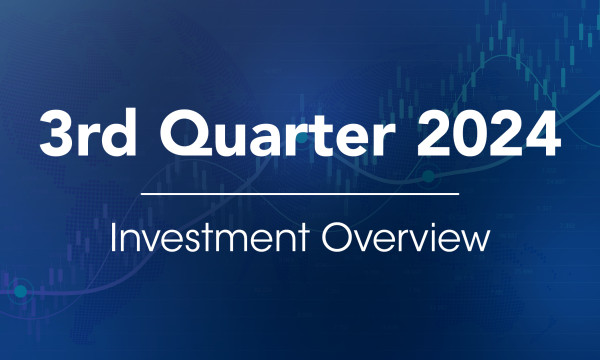Interest rates, inflation, and your investments

You may be wondering what effect times of inflation and higher-than-usual interest rates have on the stock market — and in turn, the investments in your portfolio. If so, you’re not alone; it’s the question on the minds of 401(k) account holders, online investors, and anyone else investing their hard-earned money in the financial markets.
Let’s look at how closely inflation and interest rates are related and how both can affect your investments, along with some helpful hints on how to weather these periods.
Interest rates and inflation are related
It’s important to understand that when it comes to investments, interest rates and inflation play crucial roles in determining their performance — and are closely intertwined. Central banks often adjust interest rates to control inflation. When inflation is high, central banks may raise interest rates to reduce borrowing and spending, which can help curb inflation. On the other hand, when inflation is low, central banks may lower interest rates to encourage borrowing and stimulate economic growth.
Interest rates and your investments
Let’s start with interest rates. When interest rates are low, borrowing becomes cheaper, which encourages businesses and individuals to take out loans to invest in various ventures. This increased investment can stimulate economic growth and potentially lead to higher returns on investments.
On the other side of the same coin, when interest rates are high, borrowing becomes more expensive, which can discourage investment and slow down economic growth. In this scenario, investors may opt for safer investments, such as bonds or savings accounts, which offer higher returns due to the increased interest rates. However, riskier investments, like stocks, may experience a decline in demand, leading to lower returns.
Inflation and your investments
Now, let’s talk about inflation. Inflation refers to the general increase in prices over time, which erodes the purchasing power of money. When inflation is high, the value of money decreases, and the returns on investments may not keep up with the rising prices. This can lead to a decrease in real returns, meaning the returns are adjusted for inflation.
To combat the effects of inflation, investors often seek investments that outpace inflation, such as stocks or real estate. These assets have historically shown the potential to provide higher returns than the rate of inflation, helping investors preserve their purchasing power.
What’s the best money move?
Periods when stock prices are low are generally seen as a great time to invest. If you think of stock prices being down as finding a sale on stocks, you could potentially better capitalize on lower stock prices and reap the rewards when the market rebounds. You’ll, of course, want to leave any money currently invested alone to weather the market and reap the real rewards of compounding interest. If you were to sell your investments when the market is down, you could potentially actualize any losses you might see in your account.
We’re here to help you
Understanding how these factors influence the economy and various investment options can help investors make informed decisions to maximize their returns and protect their wealth. Reach out to a member of our Union Investment Management Group (UIMG) team with your questions about investing during times of rising interest rates and inflation. As always, our team members are happy to answer your questions.
Learning Center articles, guides, blogs, podcasts, and videos are for informational purposes only and are not an advertisement for a product or service. The accuracy and completeness is not guaranteed and does not constitute legal or tax advice. Please consult with your own tax, legal, and financial advisors.
|




